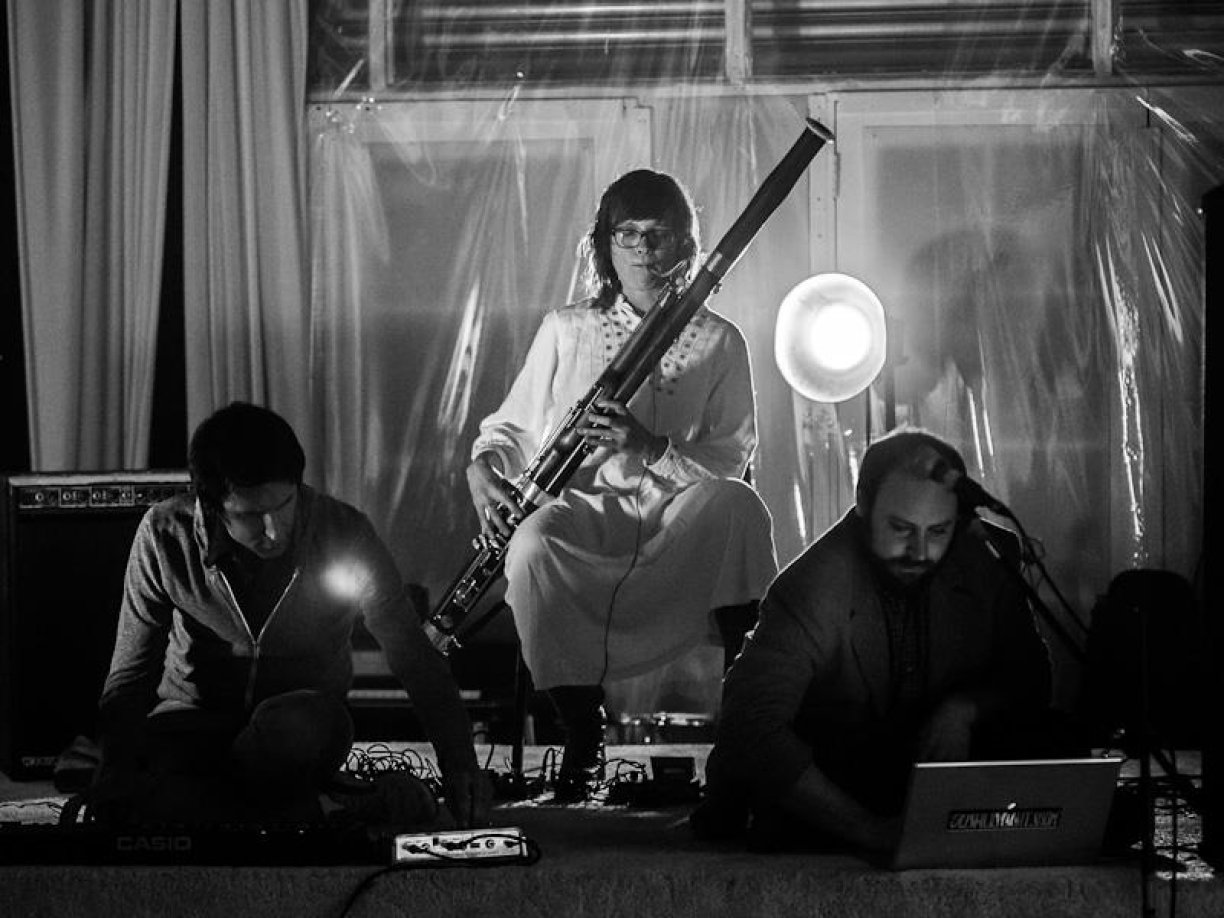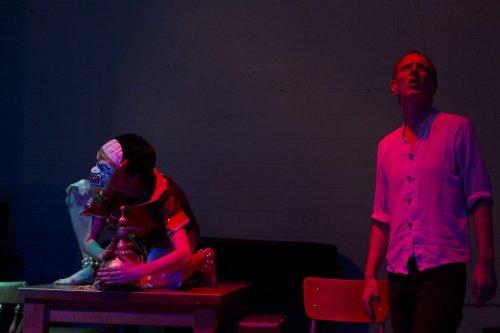Zach Layton: We started using the name Darmstadt when we were a small listening party, and now we’re a series where the artists we present are playing at the actual Darmstadt MusikInstitut in Germany, like JACK quartet and ICE Ensemble. The very first day of our festival on June 1, we’ll be presenting a documentary about the history of Darmstadt in Germany called Knots and Fields.
Nick Hallett: It’s by Andrew Chesher and David Ryan.
ZL: The following night is going to be a rare presentation of Alvin Lucier’s Queen of the South, which investigates the physicality of sound. The next weekend, we’re thrilled to be presenting the Wet Ink Ensemble, whom we’re huge supporters of.
NH: You’re starting to see one thing we love to do, which is to put different generations of composers and musicians in conversation with one another.
ZL: So, the night after Wet Ink, which involves all somewhat young composers, we’re going to have an 80th birthday celebration of the great Larry Austin. He did a lot of tape manipulations with John Cage and is an incredibly fascinating composer in his own right. He helped compose the completion of the Ives Universe Symphony, in a microtonal version.
NH: One of the shows I’m most excited about is electronic composer Terre Thaemliz. It’s hard to describe Thaemlitz’s work, but she emerged in the 1990s from the electronic, ambient, IDM realm, and then went more toward performance. Now she lives in Japan and hasn’t appeared much in New York in the past 10 years. She’s promised a really exciting work –
ZL: Soulnessless, it’s called. It’s a new project – it’s kind of a deep meditation.
NH: We’re striking out in a new direction with Darmstadt – both in terms of the Institute and in terms of our plans for the organization—with the complexity of the intermedia works we present. We’re opening up now to present more opera and performance.
ZL: In regards to performance, the night that I’m probably most excited about is John Moran (6.24 & 6.25: John Moran and his neighbor Saori).
NH: Moran uses the vocabulary of theater and of the mundane to create incredibly unique repetition-based work, but his career has mainly been in experimental performance. I’m not even really sure he is a composer in any traditional sense, but he caught the attention of Philip Glass in the late 80s, when he was maybe still a teenager and his major works are operas produced at Lincoln Center and The Kitchen. He lives in Thailand now, and this will be his first time playing New York in many years. He’s a world-class artist, and we feel totally blessed that we get to present his amazing work and give him a hero’s welcome home.
And David Borden, who is coming in from, well, Ithaca. In collaboration with Bob Moog, he started the Mother Mallard Portable Ensemble, which is one of the first electronic music groups. His major opus, The Continuing Series of Counterpoint, involves the live execution of synthesized arpeggios to intense effect. We’re interested in casting a very wide net of how to describe the experimental tradition, but I could devote the entire Darmstadt series to first-wave minimalism if I had my way.
ZL: That’s where I come in.
NH: For our Institute finale, we get to present one of our favorite young composers – someone who we’ve presented many years here at Darmstadt – Jennifer Walshe. How would you describe her?
ZL: Well, I think she’s working in an incredibly advanced place regarding extended vocal technique and opera composition and musical theater in a broad sense.
NH: The way in which she uses her voice as an expressive tool can veer into the bizarre, referencing pulp culture or different historical sensibilities. Sometimes her work can be very campy–
ZL: Or very emotionally arresting. There are times that she can express fear and anxiety in her voice in an incredibly powerful way.
NH: I’m enjoying trying to describe these composers whose work is completely indescribable. This is something we strive for in who we want to present: who’s making work that’s completely out there, that doesn’t pander to the marketplace aesthetic which is kind of ubiquitous right now in new music. I found it interesting to read the recent article in New York Magazine saying that this “omnivorous generation of composers could use something to rage against.” But there’s plenty to be outraged by, and most everyone we like at Darmstadt rages against all of it.


